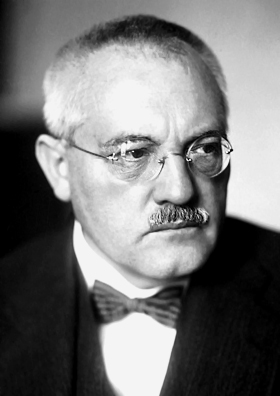Carl Bosch
German chemical engineer (1874–1940) From Wikipedia, the free encyclopedia
Remove ads
Carl Bosch was a German chemist. He developed the Haber-Bosch process which allows the production of Ammonia. BASF developed a procedure to industrially produce fertilizers on the base of nitrogen. These fertilizers can be produced with the Haber-Bosch process. Today, Nitrogen-based fertilizers are commonly used to help food production in the world. Carl Bosch was also a diplomat: He had a big influence on the Treaty of Versailles, which ended the First World War. He also worked to find a solutions about finding ways to end hunger after the war. Between 1919 and 1925 he was the head of BASF. later he became involved with I.G. Farben, a chemical company he founded. At that time, I.G. Farben was the biggest chemical company in the world. In 1931, Bosch was awarded the Nobel Prize for Chemistry, for his work in high-pressure chemistry, together with Friedrich Bergius. In 1937, he followed Max Planck as the head of the Kaiser Wilhelm Society. Because of the political situation in Germany, Bosch developed depression. In 1939, he tried to commit suicide, but failed. He died a year later, in Heidelberg.

Remove ads
Wikiwand - on
Seamless Wikipedia browsing. On steroids.
Remove ads
